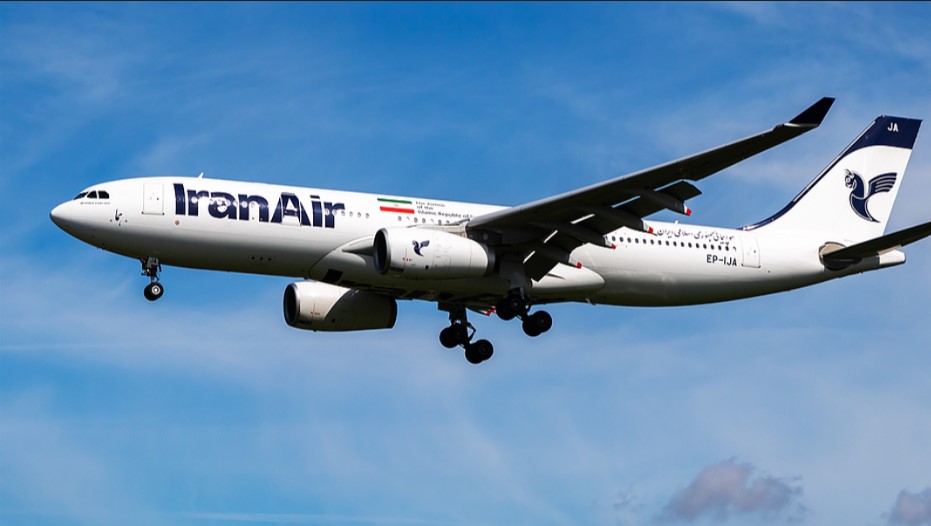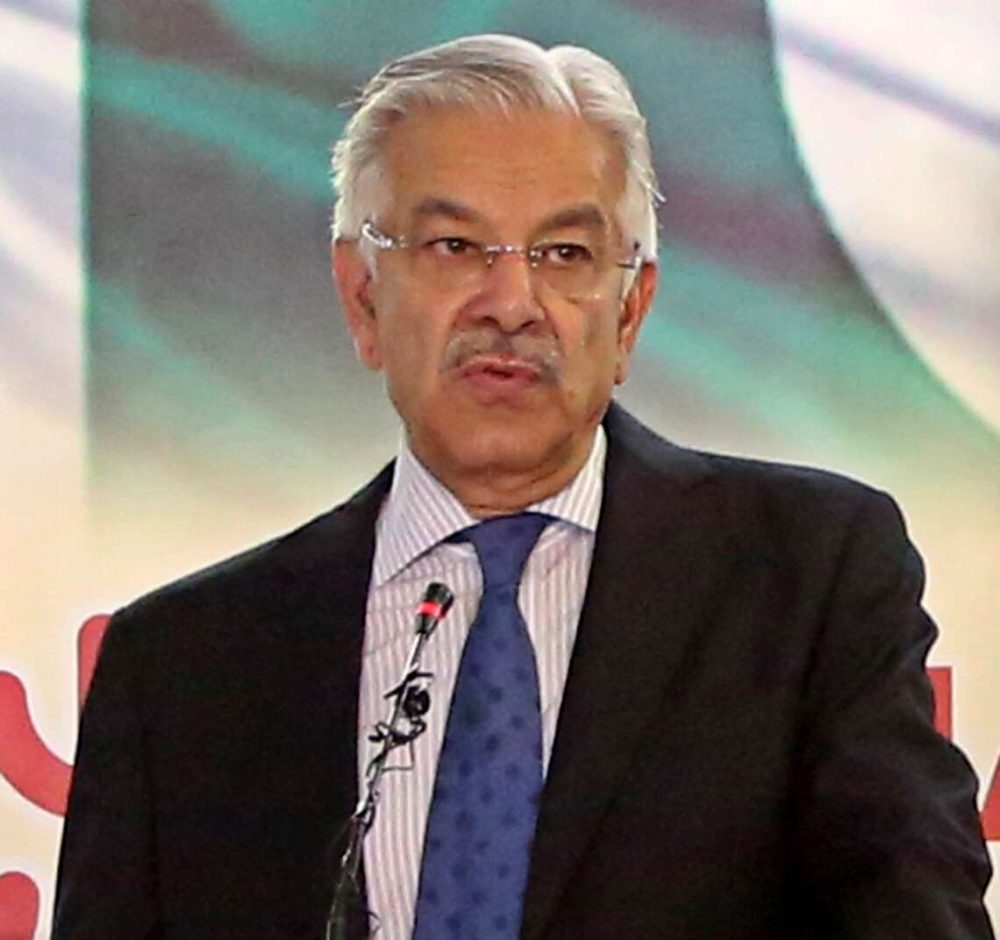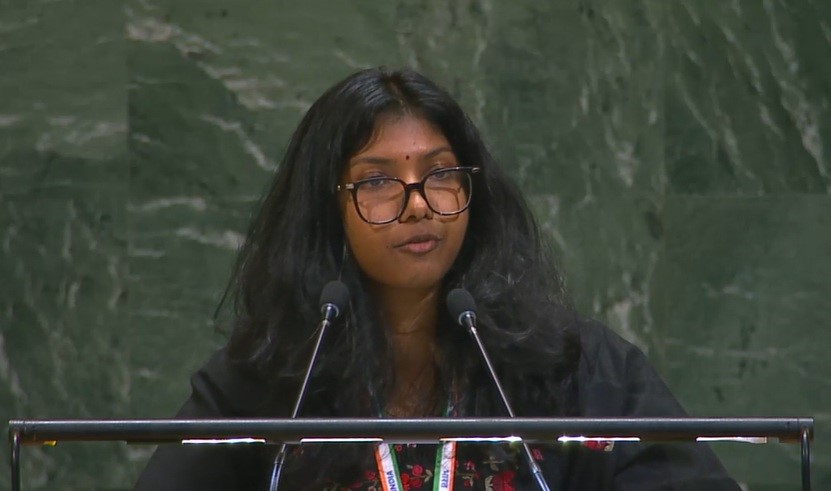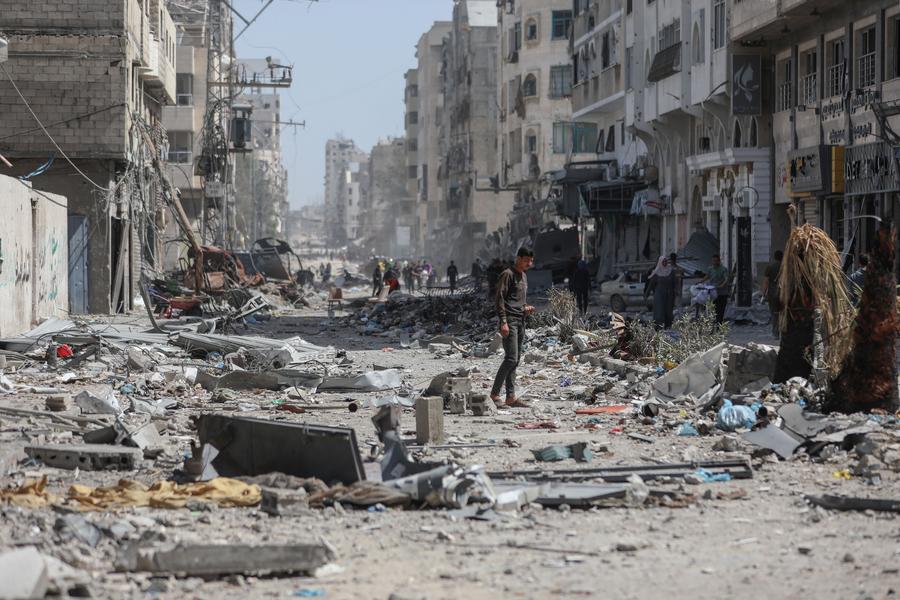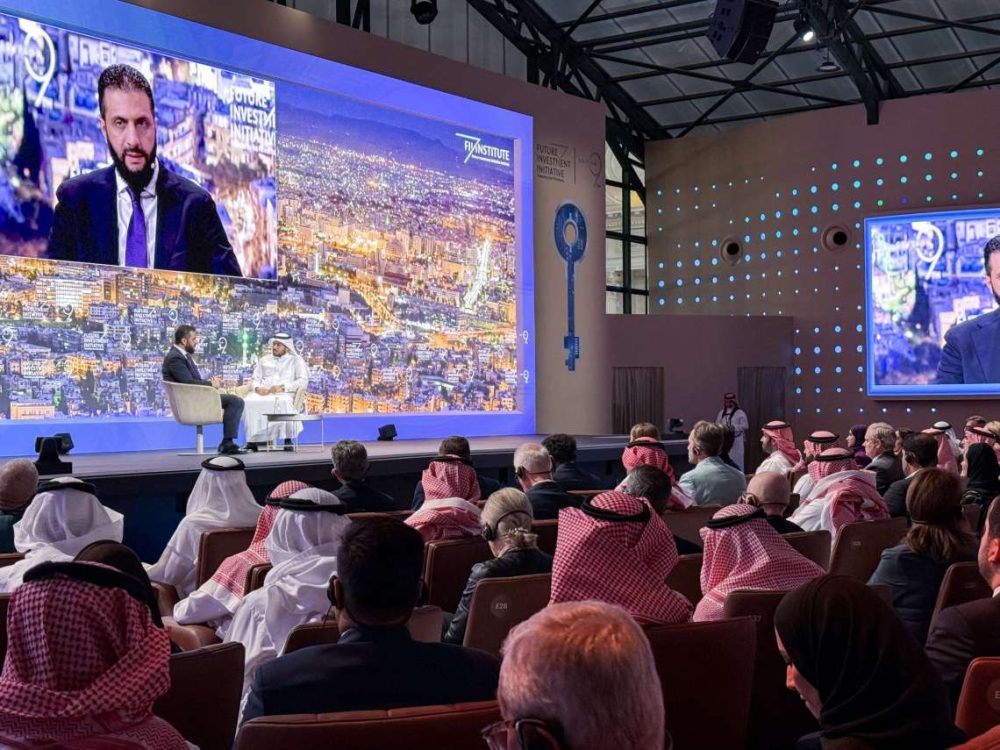Indian Navy Chief Admiral Tripathi meets Japanese Defence Minister; visits advanced JMSDF units and shipbuilding facilities. The interaction and visits carried out by Admiral Tripathi set the ground for greater mutual understanding and closer cooperation in areas of major common maritime interest, indicating a great leap forward in the naval relationship between the two countries, a report by Manan Bhatt (Retd)
Admiral Dinesh K Tripathi, Chief of the Naval Staff (CNS), held extensive bilateral discussions with Japan’s Defence Minister Gen Nakatani in Tokyo as part of his ongoing four-day official visit to Japan from July 30 to August 2, 2025.
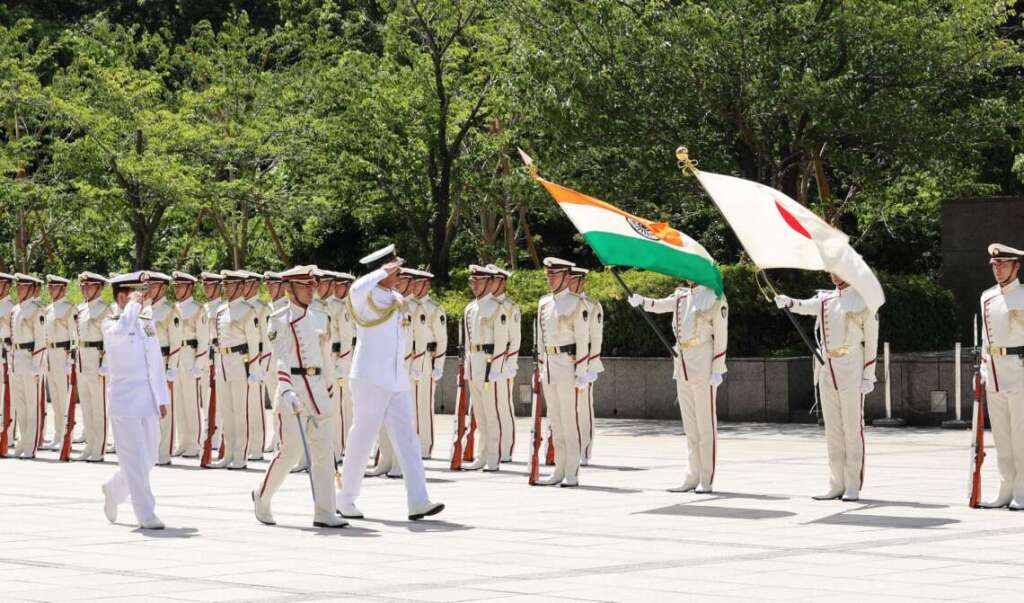
The meeting between Admiral Tripathi and Defence Minister Nakatani focused primarily on strengthening bilateral defence cooperation, particularly in the maritime domain. Both sides emphasised the need to expand collaboration in defence technology, industry partnerships, and enhance naval training and personnel exchanges between India and Japan.
A statement released underlined the shared commitment of both nations to effectively address emerging regional security challenges, further reinforcing the strategic partnership between New Delhi and Tokyo.
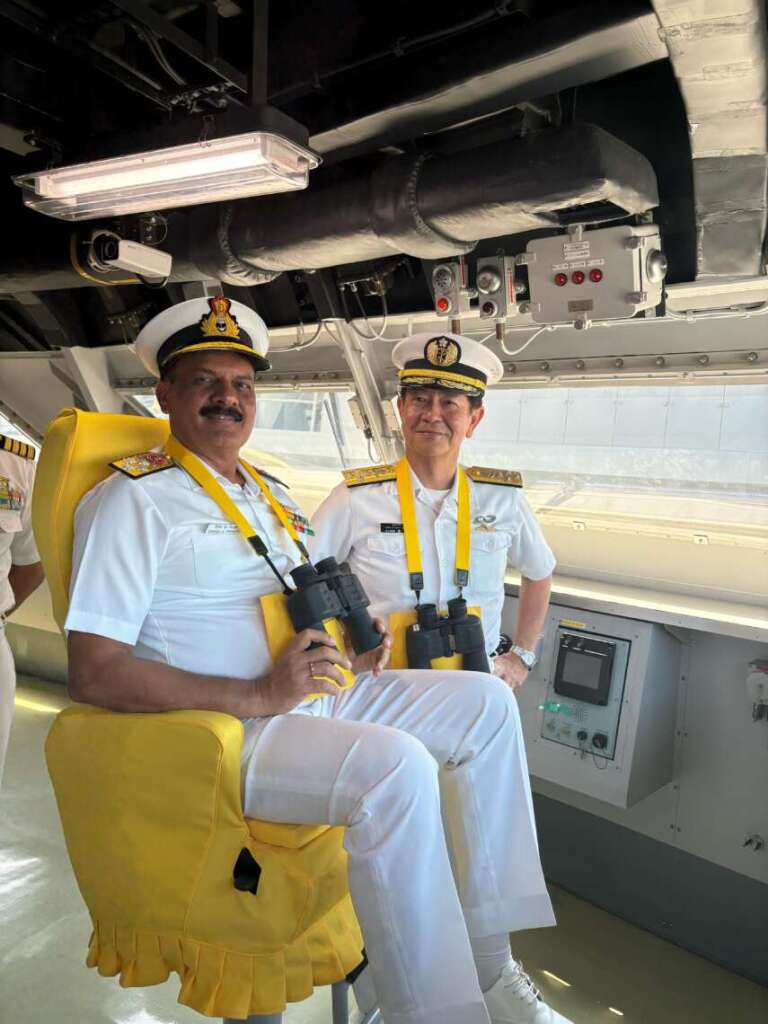
As part of his visit, Admiral Tripathi toured JMSDF’s state-of-the-art Mogami-class frigate, Kumano, symbolising Japan’s next-generation naval capability. The CNS was given a thorough presentation on the stealth design of the frigate, its multi-mission capability, and sophisticated maritime surveillance systems.
Admiral Tripathi also inspected the Japan United Marine Shipyard (JUMS), a major hub of Japanese shipbuilding. He was briefed on technical precision, automation, and industrial know-how that define Japan’s advanced shipbuilding processes.
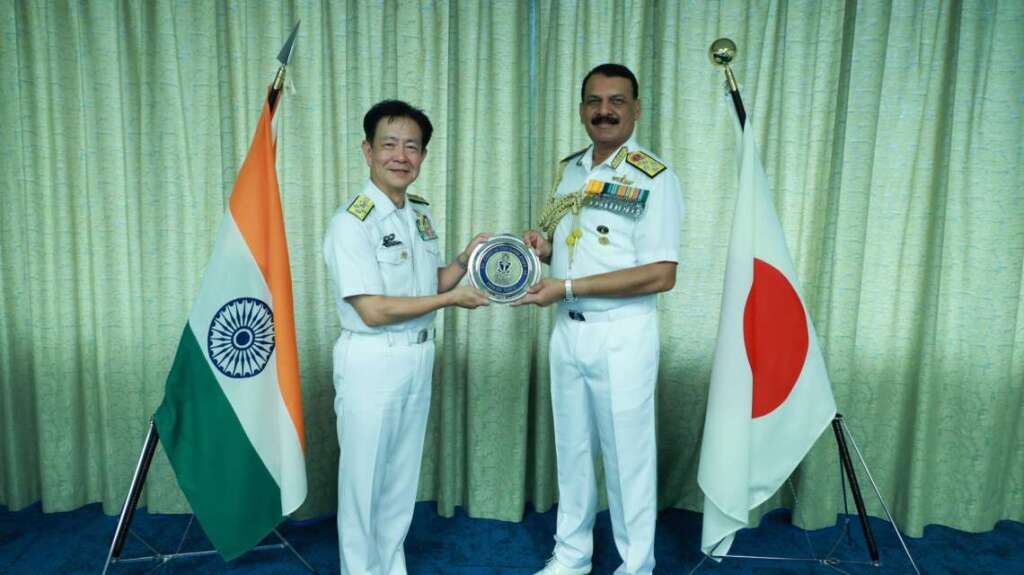
The Indian Navy Chief also called on JMSDF’s Fleet Headquarters and the Maritime Operations Centre—the nerve centre of Japan’s maritime domain awareness—where he learned about JMSDF’s organisational structure, operational roles, and strategic goals.
The interaction and visits carried out by Admiral Tripathi set the ground for greater mutual understanding and closer cooperation in areas of major common maritime interest, indicating a great leap forward in the naval relationship between the two countries.
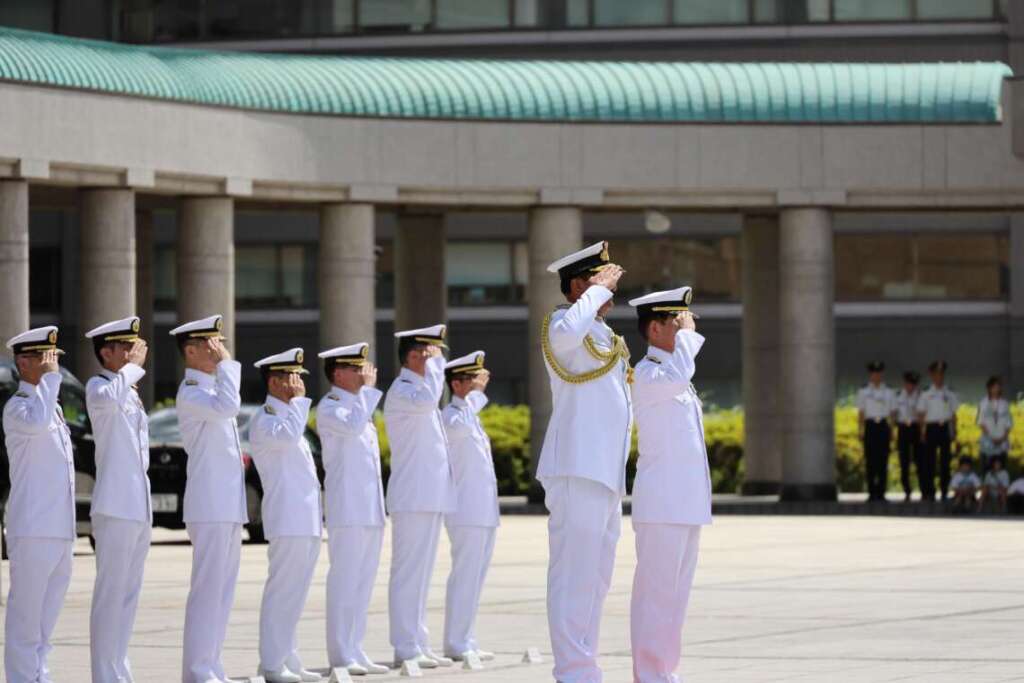
The visit by Admiral Tripathi occurs in the larger backdrop of strengthening India-Japan relations as part of their “Special Strategic and Global Partnership.” The two nations have become more aligned in their strategic outlook, particularly regarding the Indo-Pacific region.
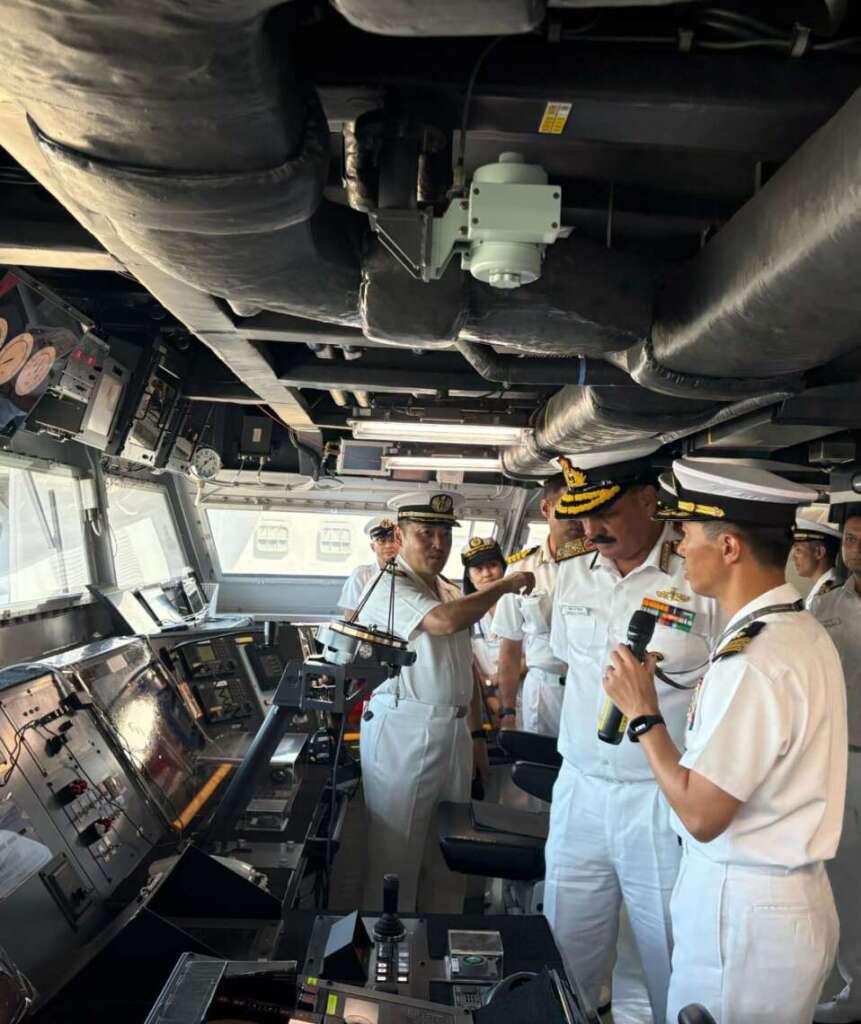
Officials observed that such top-level interactions reinforce the strong relationship of mutual respect, trust, and joint vision for regional peace and stability between India and Japan. Admiral Tripathi will further proceed with his interactions in Japan by engaging further with top Japanese naval commanders, cementing naval cooperation between the two countries.
(Manan Bhatt is a renowned Military Author, a Naval Veteran and a Defence Analyst. He tweets at @mananbhattnavy)




